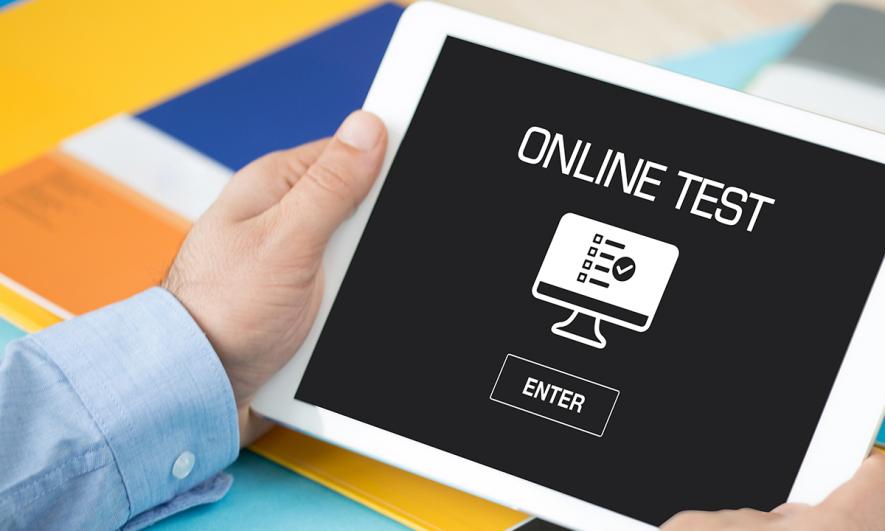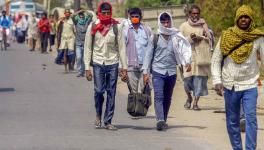Why Remote Examination is Unfair to University Students

It was thirty minutes past the scheduled time for my phone interview. I had planned to speak with a Delhi University undergraduate student as part of my PhD research on higher education. With universities closing due to the pandemic, and most students in lockdown at home, these phone interviews are what allow me to continue my research.
Though the student had confirmed just an hour ago that we would be speaking, his phone was switched off. I messaged him saying that I couldn’t get through but did not hear back. Suddenly, I got a reply, “try on this number.” I called on the number and we finally managed to connect. “The signal here is very bad,” he said, “right now I’m on the roof, where the connectivity is still better.” Our conversation naturally segued into Delhi University’s proposal to conduct exams online. My interviewee speculated about how it would happen: “There is simply no network at so many places!” He also informed me that a recent storm in his locality had resulted in electricity polls being down for two days. “If uninterrupted power supply is an issue, how can we think of online exams?” he wondered.
By the time we finished speaking, this looming possibility of online exams appeared closer: a notification from the dean in charge of examinations has declared that if the imperative to practice physical distancing due to Covid-19 does not change by July 1, Delhi University will conduct open book examinations for final year students remotely. A letter directing heads of departments to set up question papers for these exams indicates that they will be two hours long, and students will be given an additional hour for downloading the question paper and uploading answer sheets on a portal on the university website.
While further guidelines are pending, this decision to conduct exams remotely seems oblivious to the inequities among students at Delhi University. As most students are in lockdown in different parts of the country, their access to stable internet and power supply is highly variable.
In a survey of 1,500 Delhi University students conducted by the All India Students’ Association or AISA, 72% cited poor connectivity as the reason for their inability to attend online classes. Though many believe that students perpetually make excuses to avoid studying, the reality is that most students from villages, small towns and working-class neighbourhoods in cities who apply to Delhi University pay their local cyber cafes to fill their online forms. Technological scarcity is still a barrier for many students.
Likewise, students do not have equitable access to the physical space and quiet required to prepare for and write exams at home. Alongside class inequities, gendered expectations at home have disproportionately pulled women students into domestic chores, making it difficult for them to engage in academic activities. It is also unclear how the university expects visually-impaired students to write exams, considering the challenge of arranging for writers at home.
Moreover, most students had packed to go home for a short mid-semester break before the lockdown was announced, leaving behind study materials in Delhi. Without their books and notes, students will have to rely on digital materials to study. Besides internet connectivity and access to gadgets necessary for using such materials, language inequities overlay the digital divide. With English-language materials far more readily available online, Hindi-medium students are at a disadvantage. The decision to conduct exams remotely appears to be based on wilful ignorance about such inequities among students.
To be sure, all examinations everywhere—remote or on-site—are premised on wilful ignorance about inequities among students. The divides of class, caste, region, and language that the remote examination brings into sharper relief do not disappear in the context of the on-site examination. Even in “normal” circumstances, students with more comfortable physical spaces to study, fewer domestic responsibilities, better internet access, quality gadgets, and most of all, facility with the English language are unfairly advantaged in examinations. In this sense, examinations are always discriminatory in nature.
For sociologist Pierre Bourdieu, examinations are a mechanism par excellence for reproducing inequality. This is because even though certain types of students have an unfair advantage, examinations are always conducted as neutral and impartial exercises that objectively reward merit.
However, everyday life in the public university offers a possible, if fragile, antidote to the workings of such inequities. A month before exam season, Delhi University’s libraries are crowded with students, many of whom do not have the luxury of adequate private space to study at home. Photocopy shops run overtime to produce cheap copies of notes and readings. Students often pore over readings together, translate them if required, and explain their summaries to each other.
The more confident students reach out to teachers to clear their doubts and sometimes report back to their peers. Of course, many of these social interactions and co-learning rituals are borne out of the inequities that shape university life. Yet, the public university makes it possible to imagine infrastructures of sharing space and sociality that are, in many instances, unimaginable outside it. It is these infrastructures that make it possible for disadvantaged students to face the university examination.
Thus, many students are disadvantaged by the circumstances of their homes, but also because the “home” that they had created in the public university to navigate its inequities is scattered. In the absence of the everyday life on campus, students are without the social networks and collaborations upon which they rely to improvise against social and structural barriers. To insist on examinations today is to insist on looking away from inequities when they stand in sharper relief than ever before.
The author is a PhD candidate in sociology at the University of Minnesota. She is researching equity and higher education in India. The views are personal.
Get the latest reports & analysis with people's perspective on Protests, movements & deep analytical videos, discussions of the current affairs in your Telegram app. Subscribe to NewsClick's Telegram channel & get Real-Time updates on stories, as they get published on our website.
























